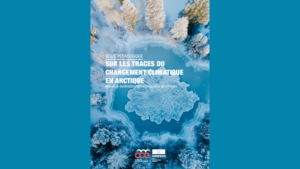Soutenance de thèse
Lia Rapella
LMD
Modelling and assessing agrivoltaics as a solution to the climate-water-energy-food nexus in the context of climate change in the Euro-Mediterranean region
Résumé
Climate change in the Euro-Mediterranean (EUROMED) region exacerbates agricultural challenges by increasing land vulnerability and reducing water availability. In response to these pressures, agrivoltaics (AVs), which combines photovoltaic (PV) energy production with agriculture on the same land, offers a promising solution within the water-energy-food-ecosystem (WEFE) nexus. AVs can enhance agricultural resilience, reduce water consumption, promote renewable energy and reduce land-use conflicts. By creating partial shading, AVs alleviates thermal stress and limits soil water evaporation, enhancing crop microclimate. However, AV performance is highly dependent on climate, crop type, and geographical context, requiring modeling tools capable of assessing AV performance at regional scales. Yet, current literature mostly focuses on site-specific models, lacking a broader, holistic approach. To address this gap, we develop a novel regional-scale AV modeling framework by integrating a PV module with the ORCHIDEE (Organizing Carbon and Hydrology In Dynamic Ecosystems) land surface model. The AV model modifies solar radiation and wind speed from regional climate models, which -along with other meteorological inputs- are fed into ORCHIDEE to simulate energy, water, carbon and nitrogen fluxes at the land surface. By prescribing agricultural soil parameters, this integrated approach enables to explore AV impacts within the WEFE nexus under both current and future climate conditions. In the first part of this project, we apply the AV model using reanalysis climate data to assess AV performance under current climate conditions in two contrasting regions: the Iberian Peninsula and the Netherlands. In the drier Iberian Peninsula, AVs offers substantial benefits, particularly under drought conditions. These include improved yields, food security, and water and land use efficiency, alongside clean energy production. Simulations with varying nitrogen fertilizer levels indicate that AVs can enhance nitrogen use efficiency and maintain or increase productivity of conventional systems, while reducing green house gas emissions. In contrast, in the Netherlands -where precipitation is more abundant and solar radiation is lower- AVs tends to reduce crop yields, with limited resource efficiency gains. This contrast suggests an heterogeneous potential for AV deployment in the EUROMED region, which spans arid to temperate zones. To further explore this, the second part of the study applies the model to the entire EUROMED basin using EURO-CORDEX climate projections under RCP 8.5. This enables an evaluation of AV systems as a climate adaptation strategy within the WEFE nexus. Results show that AV benefits are strongly influenced by regional climate trajectories and water availability trends. Southern, drought-prone areas are especially well-suited for AVs, with high potential to reduce water stress and sustain agricultural productivity under warming conditions. In northern, wetter regions, the benefits are less evident, emphasizing the need for targeted deployment.
Informations supplémentaires
Location
Observatory SIRTA
Zoom
https://cnrs.zoom.us/j/99398397090?pwd=bIdcKG69b3qoHVDGsFebkPNY6pRfS8.1
Password: eMN7md
Composition du jury
– Marta Debolini, Institute for Climate Resilience (reviewer)
– Giulia Vico, Swedish University of Agricultural Sciences (reviewer)
– Carole Dalin, Laboratoire de Géologie de l’ENS (examiner)
– Philippe Delacote, Laboratory of Forest Economics, INRAE (jury president)
– Philippe Drobinski (PhD advisor)
– Davide Faranda (PhD advisor)






